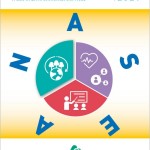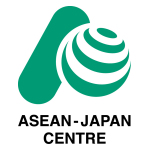TOKYO–(BUSINESS WIRE)–The ASEAN region is seeing an increase in the demand for environmental services due to rapid population growth and urbanization, including waste and wastewater management, air pollution and climate change mitigation, according to the study by the ASEAN-Japan Centre, Promoting Services Trade in ASEAN: Trade in Environmental Services, published today. This is the third and last report in the three-paper series of social services under the second phase of the project on promoting services trade.
The estimated sales of environmental services through foreign commercial presence (Mode 3 delivery of services) in ASEAN is at least $1.4 billion in 2016, of which more than half is from foreign entities based in Singapore, followed by Thailand and Malaysia, respectively. On the other hand, the estimated sales of ASEAN entities providing environmental services abroad is $383 million, 90% of which are Singaporean companies. Meanwhile, investment flows to environmental services in ASEAN between 2003 and 2017 is estimated at a value of $1.5 billion, with Singapore receiving the largest amount of investment valued at $948 million, followed by Malaysia, Viet Nam, and Thailand. Investments were concentrated in solid waste management services and in wastewater treatment/sewage services.
Due to the public nature of environmental services provision, the main types of trade liberalization in environmental services, like any other services trade, are service market access and national treatment; while licensing and approval procedures are the most prevalent regulatory measures as these processes can be discretionary in some countries. Important emerging issues related to this include the import of plastic waste by several ASEAN states, and the increasing marine plastic debris problem.
The paper recommends that freer trade could reduce the cost of environmental services and help firms to access cheaper or more advanced technology. Considering the public good nature of environmental services, the paper recommends ASEAN states to further delineate the commitments/activities that fall under environmental services, to focus on adapting to emerging new environmental situations as a region, and to include environmental services in provisions in regional trade agreements, which is not the case for the recently concluded Regional Comprehensive Economic Partnership (RCEP).
Aside from this publication, relating to work on environmental services, the Centre carried out a programme called “Future Leaders� Declaration on ASEAN-Japan Cooperation on International Marine Plastic Waste�. This programme aimed to further strengthen the ASEAN-Japan strategic partnership as stated in the “Joint Statement of the 23rd ASEAN-Japan Summit on Cooperation on ASEAN Outlook on the Indo-Pacific (AOIP)” dated November 12, 2020, and specifically implement policy recommendations on marine plastic waste during Fiscal Year 2021 and onwards.
To view and download the report, please visit the AJC website as below.
https://www.asean.or.jp/en/trade-info/pst2_papers/
Contacts
ASEAN-Japan Centre (AJC) PR Unit
Tomoko Miyauchi (MS)
URL: https://www.asean.or.jp/en/
TEL: +81-3-5402-8118
E-mail: [email protected]








